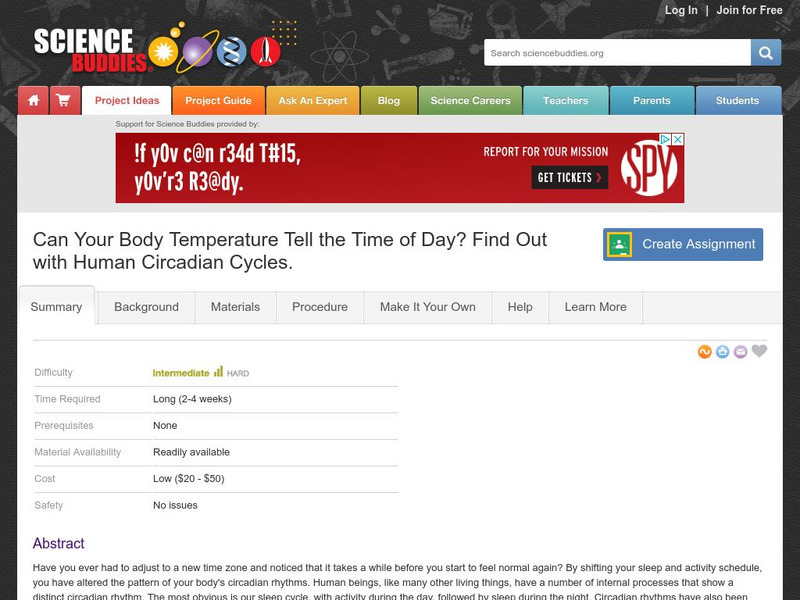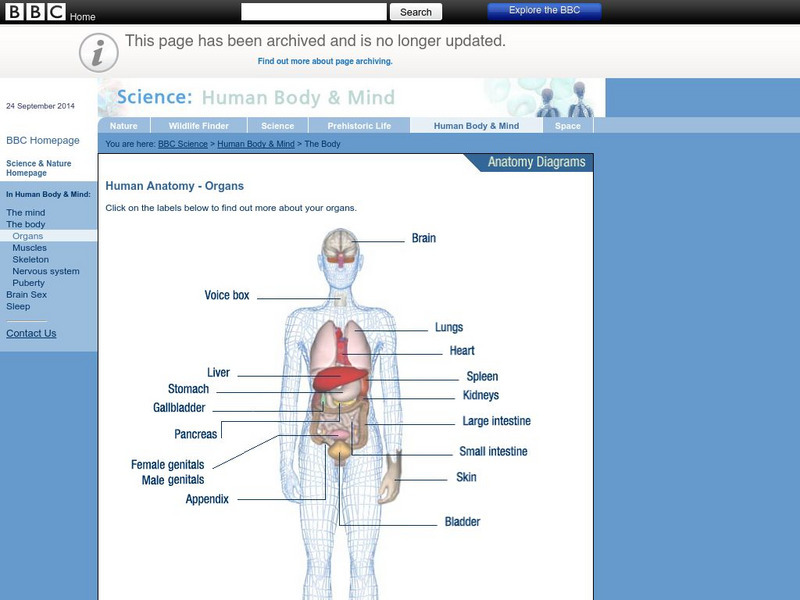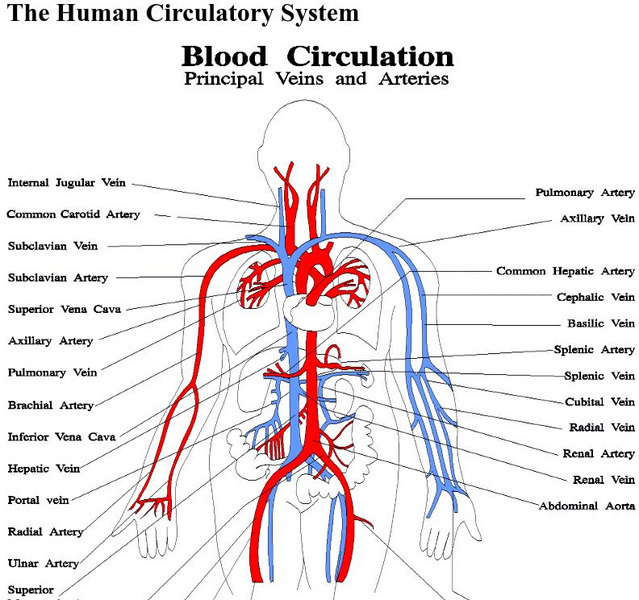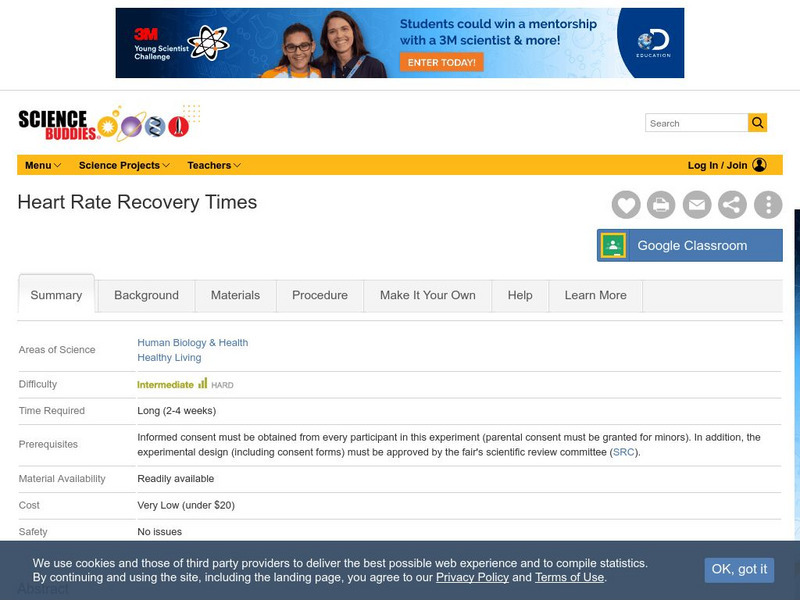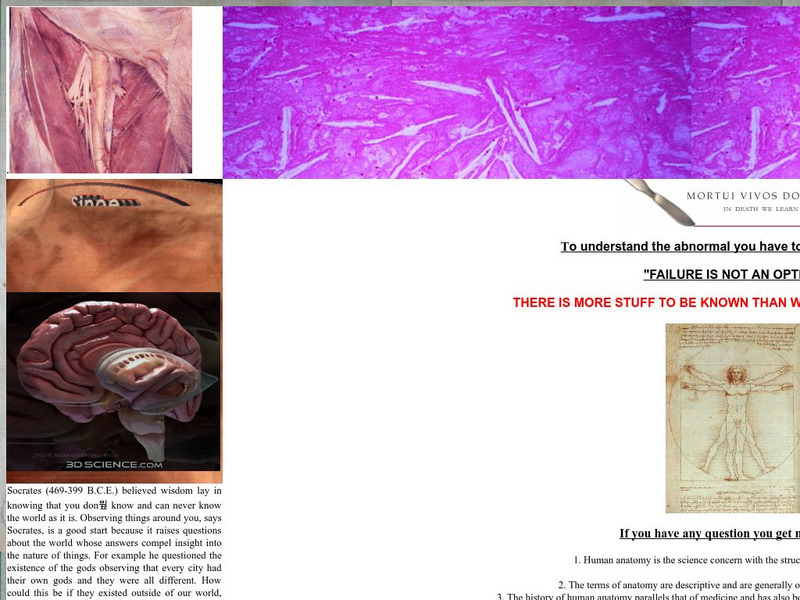Curated OER
A Child's Journey through Medicine
Young scholars experience a variety of activities that relate to human physiology and their functions. They create graphs and charts after testing their heart rates and blood pressure They conduct a survey of the student body and...
Curated OER
Skeletal System
Third graders describe and identify the parts of the skeleton and how they support the body. They observe two chicken bones that have been soaked in vinegar for 5 - 7 days. They observe the bone's appearance after it has been removed...
Curated OER
Stem Cells: 5 Year Progress Report
Learners explore different aspects of stem cells. In this human biology instructional activity, students complete numerous activities including reading an article and discussing it, watching a video on stem cells reproducing over...
Curated OER
Exercise and Heartrate
Fourth graders experiment to find the effects of exercise on the heart rate. In this exercise and heart rate lesson plan, 4th graders create questions about exercise and heart rate. Students use the scientific method to test and...
Curated OER
Blood Highways
Fifth graders read an informative paragraph about how blood travels through our bodies. Then, they fill in the missing letters for words that label things in the circulatory system. An answer key is provided on page two. An interesting,...
Curated OER
Building a Baby
Students study the fetal development of humans. In this development lesson students divide into groups and research the different gestational weeks of a fetus.
K12 Reader
Xylem and Phloem
The vascular tissue found in plants is the subject of a two-part comprehension worksheet that asks kids to read the provided article and then to respond to a series of comprehension questions.
Curated OER
No Valve in Vain
Young scholars design and create their own heart valves out of a variety of materials. Their heart valves are one way valves designed for water flowing through a tube representing blood moving through the heart.
Curated OER
Interesting Insects
In this insects worksheet, students read about insects and then answer the 10 questions pertaining to what they just learned. The answers are on the last page.
Curated OER
TE Lesson: What to Wear? What to Drink? Weather Patterns and Climatic Regions
Students examine how climate affects lifestyle, clothing choices, food, and water sources. They explore climatic regions such as tropical, desert, coastal, and alpine situations. They look at the longitude and latitude, land features and...
PBS
Pbs Learning Media: Map of the Human Heart
See how the human heart moves blood through the body in this animated feature from the NOVA: "Cut to the Heart" Web site.
Other
Read Works: The Human Body: The Human Heart [Pdf]
An informational text about the human heart, its parts, and it functions. A question sheet is available to help students build skills in reading comprehension.
Science Buddies
Science Buddies: Can Your Body Temperature Tell the Time of Day?
If you have ever had to adjust to a new time zone, you have noticed that it takes a while before you start to feel normal again. By shifting your sleep and activity schedule, you have altered the pattern of your body's circadian rhythms....
BBC
Bbc: Human Anatomy: Organs
Explore the anatomy of the human body. Click on an organ or other body part to read more about its structure and function, and then try out an interactive activity for that organ.
The Franklin Institute
Franklin Institute Online: How Your Body Is Like a Factory
This site explores the various systems in the human body such as the circulatory, respiratory, and excretory systems.
SEDL
The Human Body [Pdf]
A large PDF unit that teaches students about the human body systems. Incorporates many activities and integrates math and language arts.
PBS
Nova Online: Map of the Human Heart
This PBS site has a concise explanation of how the heart works. There is also a moving diagram of a working heart.
Other
World Invisible: The Human Circulatory System: Blood Circulation
A labeled diagram of the major veins and arteries in the human body.
Science Buddies
Science Buddies: Heart Rate Recovery Times
After exercise, your heart rate increases, this is normal for everyone. However this experiment asks whether the recovery time for a heart's beating rate is faster for people who get regular exercise versus those that do not.
Science Buddies
Science Buddies: A Day in the Life of Your Heart
Heart rates can be determined by the amount of physical activity your body is engaging in. The more physically active you are, the faster your heart beats. You can measure the rate your heart is beating by taking your pulse. This science...
Other
Danil Hammoudi, Md: Anatomy and Physiology Course
This page has complete course material for a beginning human anatomy course and everything can be downloaded. There are readings and presentations on all the major systems and organs of the human body, with lots of detailed, labeled...
National Cancer Institute at the National Institutes of Health
Seer Training Modules: Introduction to the Cardiovascular System
Self-guided learning activity where students learn about the structure and function of the human cardiovascular system. There is a short quiz at the end of the lesson to check for understanding.
Gateway Community College
James Crimando: Cardiovascular System
Learn the anatomy of the human cardiovascular system.
Other
Inside the Human Body: The Respiratory System (Grades 1 3)
Students in grades one through three will love learning about the body's respiratory system through a variety of fun and interactive activities. Particularly engaging is the online storybook that teaches children about the heart and...











